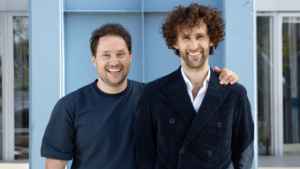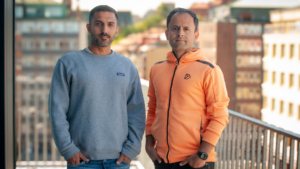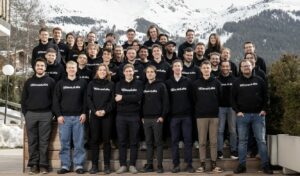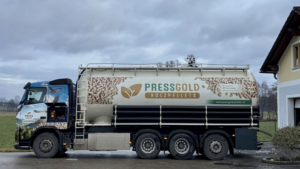Austria as Role Model for CEE Energy Transition: TEB Forum Unites Policymakers, Industry, Innovators and Academia
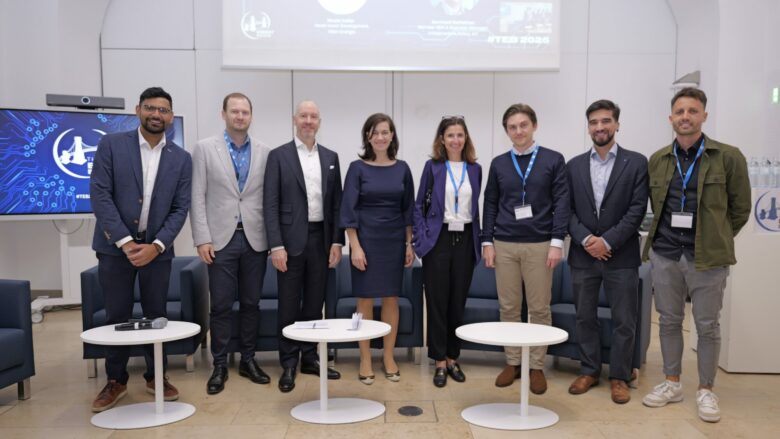
The 2nd Energy Transition Dialogue, hosted by The Energy Bridge (TEB) in Vienna, reaffirmed Austria’s position as a key nexus and role model in driving energy transformation across Central and Eastern Europe (CEE). Held at the prestigious TU Wien, the conference served as a “Showcase of Collaboration,” shifting from discussion to decisive action on how the successful implementation of the 4Ds — Decarbonization, Decentralization, Digitalization, and Democratization — can be replicated across the region.
The forum’s success lay in its ability to connect Austria’s policy frameworks and technological excellence with the real-world needs of CEE industries, reinforcing Vienna’s emerging role as the gateway to the region’s green transformation.
Key Insight: The CEE Green Transition as an Austrian Opportunity
Highlighting the economic potential of regional collaboration, The Energy Bridge shared new findings from the Vienna Institute for International Economic Studies (wiiw). The study, “Green Transition in Central and Eastern Europe: Opportunity for Austria,” estimates that achieving the green shift in CEE and SEE nations will require €400 billion in investment by 2030. Far from a risk, this represents a major economic opportunity for Austria.
With its advanced technological base and industrial capacity, Austria is strategically positioned to become both a supplier and technology partner for its neighbors—an alignment clearly reflected throughout the TEB Forum.
Laying the Policy Foundation: A Blueprint for CEE
The event opened with remarks from TEB Co-Founders, setting the tone for the day’s discussions on the “Impact of AI Approach to Energy Collaboration.”
Benedikt Ennser (Directorate-General, Federal Ministry of Energy, Economy and Tourism) delivered the keynote, outlining the policy framework enabling energy transition and de-risking investment for industries.
Susanne Supper (Managing Director, Green Energy Lab) followed, showcasing their innovation models that efficiently bridge R&D with industry implementation.
Decarbonization: Austrian Innovation as a Regional Template
Session I spotlighted scalable industrial decarbonization projects:
- Anna Aichinger (City of Vienna – Energy Planning) presented Vienna’s Blueprint for Decarbonization.
- Thomas Köck (EVN) detailed the SEKOHS Theiss Hybrid Energy Storage Project, advancing grid stability.
- Lukas Höber (CEO, sequestra) explored mineralization of waste materials as a pathway to industrial net-zero.
- Veronika Wilk (AIT) presented the AHEAD Advanced Heat Pump Demonstrator (AIT x Takeda), illustrating the potential of high-temperature heat pumps to decarbonize industrial processes.
A panel moderated by Anita Malli (ORF) brought together Nicola Kofler (Wien Energie), Lukas Höber, Benedikt Ennser, Korbinian Kasinger (kW-solutions), and Bernhard Gahleitner (AIT/NEFI Network). Gahleitner underscored the importance of applied research and demo projects—such as NEFI’s Innovation Network—in driving industrial transformation and exportable solutions for CEE.
Decentralization, Digitalization, and Regional Integration
Session II: Decentralization of Energy Systems
This session highlighted local initiatives empowering energy communities across the region. Karol Galek (Member of Parliament, Slovakia) and Christina Drochter (EnergiePark) presented Energiepark Bruck an der Leitha’s Renewable Energy Strategy. Kitti Kropko (MAVIR) shared Hungary’s regulatory approach, while Lorena Skiljan (Nobile Group) discussed Power Purchase Agreement (PPA) strategies.
Moderator Roman Öfferlbauer (Sonnnig) summarized the urgency: “Decentralization is no longer a choice—it’s a necessity to meet CEE’s complex energy challenges.”
The subsequent panel—including Micha Schober, Lorena Skiljan, Roland Matous (Egon), Marko Svetina (BM2Solar), and Karol Galek—examined national contrasts. Matous praised Austria’s strong regulatory environment and the EDA data exchange platform, noting, “Such centralized data infrastructure doesn’t yet exist elsewhere in CEE.”
Galek highlighted Slovakia’s recent regulatory progress but warned that political will, market incentives, and public awareness remain insufficient for widespread decentralisation.
Schober and Skiljan reflected on the urban limitations of energy communities, while Svetina emphasized resilience: “Decentralized energy hubs enhance national energy security. In today’s geopolitical climate, many small systems are far more robust than a few large power plants.”
Session III: EU Action Plan for Digitalisation
This session explored Europe’s digital energy architecture.
Aaron Saghera (Analog Devices) introduced advancements in grid digitalization. Angela Berger (FFG) and Ghazal Etminan (AIT) presented work on IES Initiatives and Federated DataSpaces, emphasizing trusted, secure energy data sharing. Bharath Varsh Rao (AIT) showcased Digital Process Twin Integration, illustrating how digital twins bolster operational planning and grid resilience.
The panel—featuring Matthias Obermair (Austrian Power Grid), Michael Weixelbraun (Burgenland Energie AG), Angela Berger, Bharath Varsh Rao, Sabine Mitter (Ministry of Innovation, Mobility and Infrastructure), and Aleš Prešern (Siemens Energy)—discussed strategies for scaling up the EU’s Digitalisation Action Plan. Rao stressed the critical role of advanced digital tools and interoperability in achieving cross-border efficiency.
Session IV: Democratization and Global Perspectives
The final session brought a broader, people-centered lens to the energy transition. Martin Riegler (CSO, Econetix) explored how renewables can drive competitiveness, while Yuliia Borzhemska (DTEK) provided insights from Ukraine’s energy resilience efforts. Daniel Kroos (World Energy Council) highlighted the need for a clean, just, and people-centered transition.
The session concluded with CSTEP India sharing lessons from India’s ambitious renewable energy goals.
The Road Ahead: Sustaining Momentum
The 2nd TEB Forum reaffirmed The Energy Bridge’s role as a catalyst linking policy, capital, and technology between Vienna and the wider CEE region.
Looking ahead, TEB plans to build on this momentum through several key initiatives:
- A major two day regional forum in May to further unite CEE’s energy ecosystem.
- A Hackathon on Resilience in Energy Systems in February 2026.
- The launch of Ukraine Energy Days, focusing on reconstruction and green cooperation.
- Ongoing episodes of TEB’s podcast, continuing to bridge policy and practice through expert analysis and discussion.
With its growing network and tangible outcomes, The Energy Bridge continues to solidify Austria’s leadership as the connector and catalyst for Central and Eastern Europe’s sustainable energy transformation.














